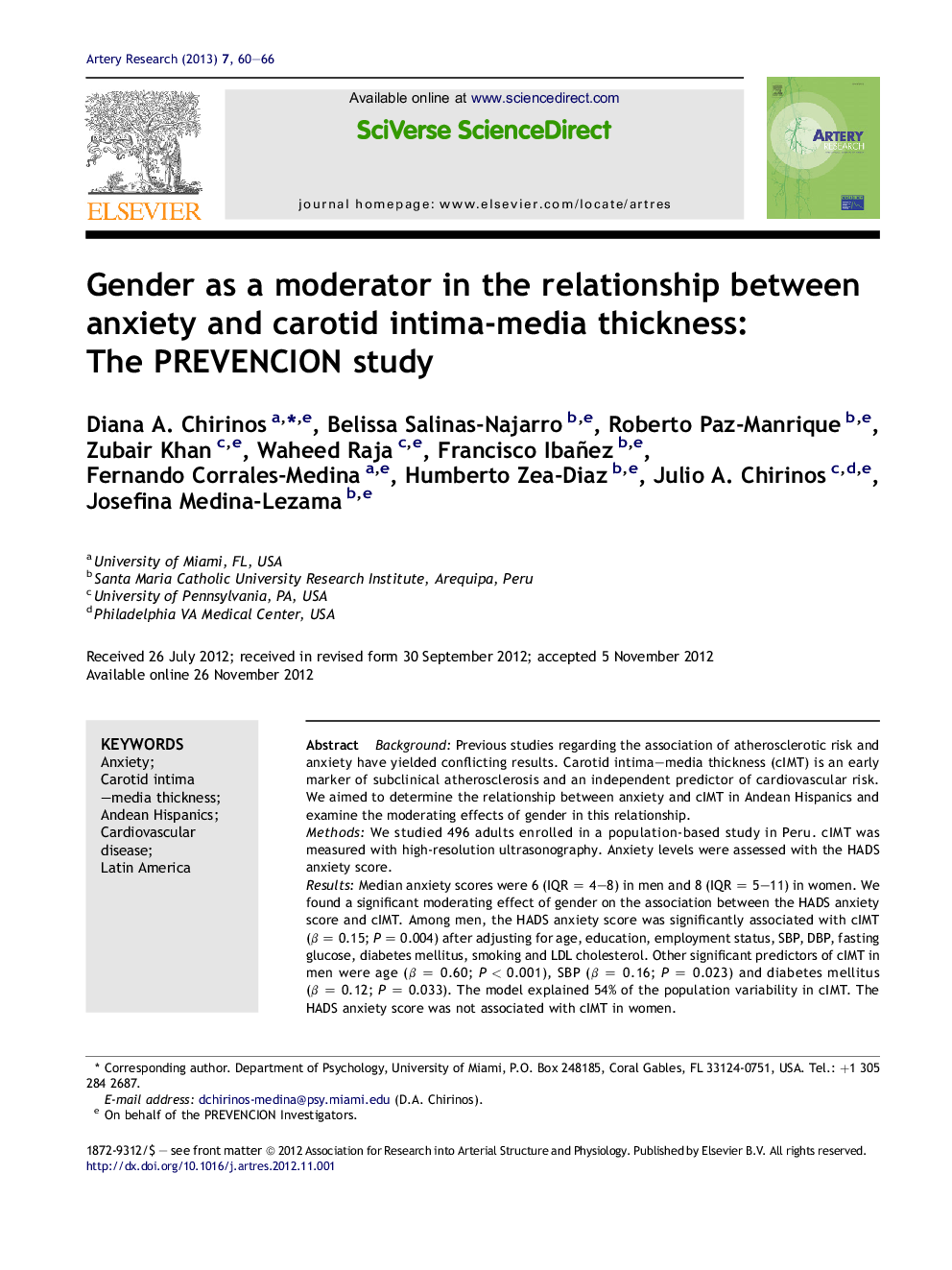| Article ID | Journal | Published Year | Pages | File Type |
|---|---|---|---|---|
| 2891748 | Artery Research | 2013 | 7 Pages |
BackgroundPrevious studies regarding the association of atherosclerotic risk and anxiety have yielded conflicting results. Carotid intima–media thickness (cIMT) is an early marker of subclinical atherosclerosis and an independent predictor of cardiovascular risk. We aimed to determine the relationship between anxiety and cIMT in Andean Hispanics and examine the moderating effects of gender in this relationship.MethodsWe studied 496 adults enrolled in a population-based study in Peru. cIMT was measured with high-resolution ultrasonography. Anxiety levels were assessed with the HADS anxiety score.ResultsMedian anxiety scores were 6 (IQR = 4–8) in men and 8 (IQR = 5–11) in women. We found a significant moderating effect of gender on the association between the HADS anxiety score and cIMT. Among men, the HADS anxiety score was significantly associated with cIMT (β = 0.15; P = 0.004) after adjusting for age, education, employment status, SBP, DBP, fasting glucose, diabetes mellitus, smoking and LDL cholesterol. Other significant predictors of cIMT in men were age (β = 0.60; P < 0.001), SBP (β = 0.16; P = 0.023) and diabetes mellitus (β = 0.12; P = 0.033). The model explained 54% of the population variability in cIMT. The HADS anxiety score was not associated with cIMT in women.ConclusionsWe found an important moderating effect of gender in the relationship between anxiety and subclinical atherosclerosis. Anxiety was independently associated with subclinical atherosclerosis among Andean Hispanic men, whereas no relationship was found among women. Further studies are required to assess the mechanistic determinants of this association and assess whether interventions to decrease anxiety levels retard the progression of early, subclinical atherosclerosis.
